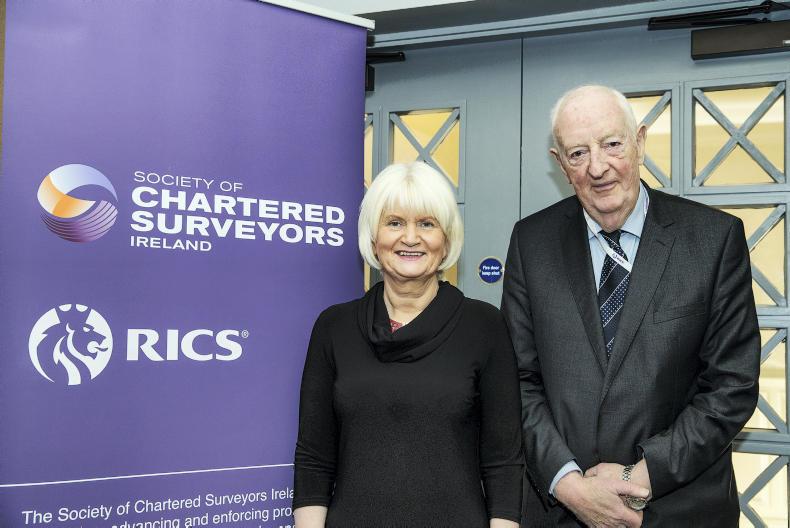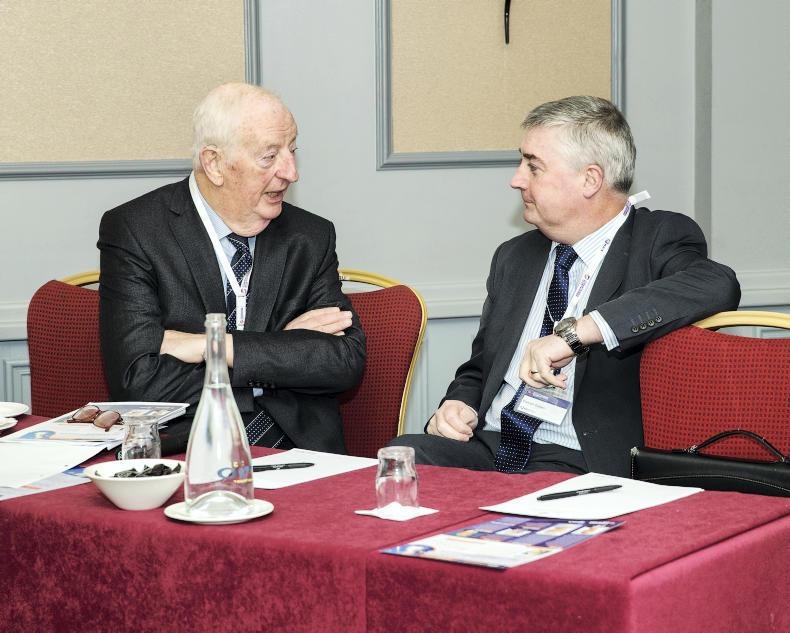The ramifications of Brexit are enormous,” said Marian Harkin MEP at the Society of Chartered Surveyors Rural seminar in Portlaoise last week.
“From fishing waters to free movement, from energy to transport, Brexit will involve unimaginable dislocation”.
The Sligo-based MEP said that the British government was totally unprepared for an exit from the EU.
“The British didn’t know how to win a referendum – they let this one slip through their fingers. When they were in, they were half out. Now that they are going out, they want to be half in.”
She suggested that given the short window for negotiations, the EU could “kick the can down the road”. A unanimous decision could extend the time frame beyond the two years. Britain has a substantial amount of work to get through in a relatively short period. Apart from negotiating Brexit, it will also have to negotiate trade deals with countries outside the EU.
But what led to Brexit?
“A new type of nationalism is sweeping the world. This new-found nationalism is becoming a political force, one that opposes globalisation, driven by neoliberal economics. It is rife within the EU. People are saying we have enough of experts – emotion is dictating.
“The suspicion around main street politics and its institutions is what drove Brexit. Now we know that nothing is inconceivable. If France was to leave, it would mark the end of the EU agenda,” she said.
Yet, despite all the mutterings about a possible hard Brexit, this MEP begs to differ.
“Economic reality will play a major role. I doubt we will see a hard Brexit. There is likely to be some easing out and some easing in. If there was a hard Brexit, the EU would withstand it better than Britain. But all options are open. Nothing can be ruled out or ruled in. There can be no more sweeping under the carpet, whether it’s trade deals or immigration. The pendulum is clearly swinging from globalisation to nationalism. Brexit didn’t happen in a vacuum,” she concluded.
Not good for Ireland
IFA president Joe Healy, who also spoke at the SCSI seminar, said that while many ambassadors from various countries are adamant that it should be a hard Brexit, he believes that such a scenario would not be good for Ireland and its agri-food sector.
“We have unique movement of goods, services and people in and out of the UK. Over a billion litres of milk and 350,000 lambs from Northern Ireland come south. We export 60% of our cheese and 54% of our beef to the UK. The importance of the agri food sector cannot be underestimated. It keeps our rural communities alive. The Government must put its best team forward to ensure the best possible outcome for our sector and for our communities,” said Joe.
Rural communities voted in their masses
Gerard Smith, chair of the UK RICS Rural PG Board, said that Brexit was a protest vote.
“There is a huge feeling of disenfranchisement between the rural and large urban centres. Many rural communities, who never voted before, came out in their masses. I come from a small community in East Anglia – 73% of the people there voted to leave. We are where we are. There is no going back.”
While farmers and the wider rural communities voted to leave, Gerard made the interesting point that many of these voters are dependent on workers from eastern Europe to survive.
“After British registered cars, the next most common registrations in my community are cars from Poland and Lithuania. Farmers rely on the Polish and Lithuanians to cut lettuce heads, package vegetables, do the yard work. Who will they get after Brexit?” he said.
Agriculture accounts for 0.5% of GDP (less than stg£4bn) in the UK, which interestingly is on a par with Denmark, Belgium and the Netherlands. Gerard commented that the farming sector in the UK faces many challenges ranging from a shortage of young people entering the industry to a lack of productivity and self-sufficiency.
“Commodity prices are good at the moment, mostly as a result of currency fluctuation. Interest rates are historically low but yet farmers are still extremely dependent on CAP payments to prop up their income.
“UK farmers receive stg£3bn of CAP funds. Up to 60% of the average farmer’s income comes from CAP support. We know that the rural subsidies will continue until 2020. Post Brexit it will be difficult to see them continue at the current level. Other sectors will be up in arms if they see the British government giving farmers money to supplement their income,” said Gerard.
At the moment, 70% of UK food imports come from the EU. Gerard believes that post Brexit, the UK consumer won’t want GM food or hormonal beef from the US. “This”, he says, “could be good for Ireland”.
Ireland exports 40% of its agri food to the UK, including 54% of its beef. He remarked that the current relationship between Ireland and the UK could make way for special/bilateral agreements between the two countries.
Every sector has its own concerns
The farming sector is not alone when it comes to the harsh reality of Brexit. Eamon Gallen from Ervia spoke about the possible challenges that it faces when the UK leaves the EU.
“Ireland is critically dependent on gas supplies from the UK and, in particular, from Scotland. One of our biggest concerns is the security of supply post Brexit. At the moment, our supply arrangements and employment contracts with the UK are bound by EU regulations and laws. We also have an Inter-governmental gas treaty in place with the UK since 1993. The future of these arrangements is not clear but based on our own analysis, we believe the impact of Brexit on gas supply is low. The Corrib pipeline will safeguard 60% of Ireland’s supply needs, with a further 5% coming from Kinsale.
“Apart from supply concerns, we will also be keeping a close eye on currency fluctuation. A weakening pound is certainly beneficial at the moment,” added Eamon.
Formerly known as Bord Gáis Éireann, Ervia is a semi-state company charged with the responsibility of delivering gas and telecom networks and, more recently, the establishment of Irish Water.






SHARING OPTIONS